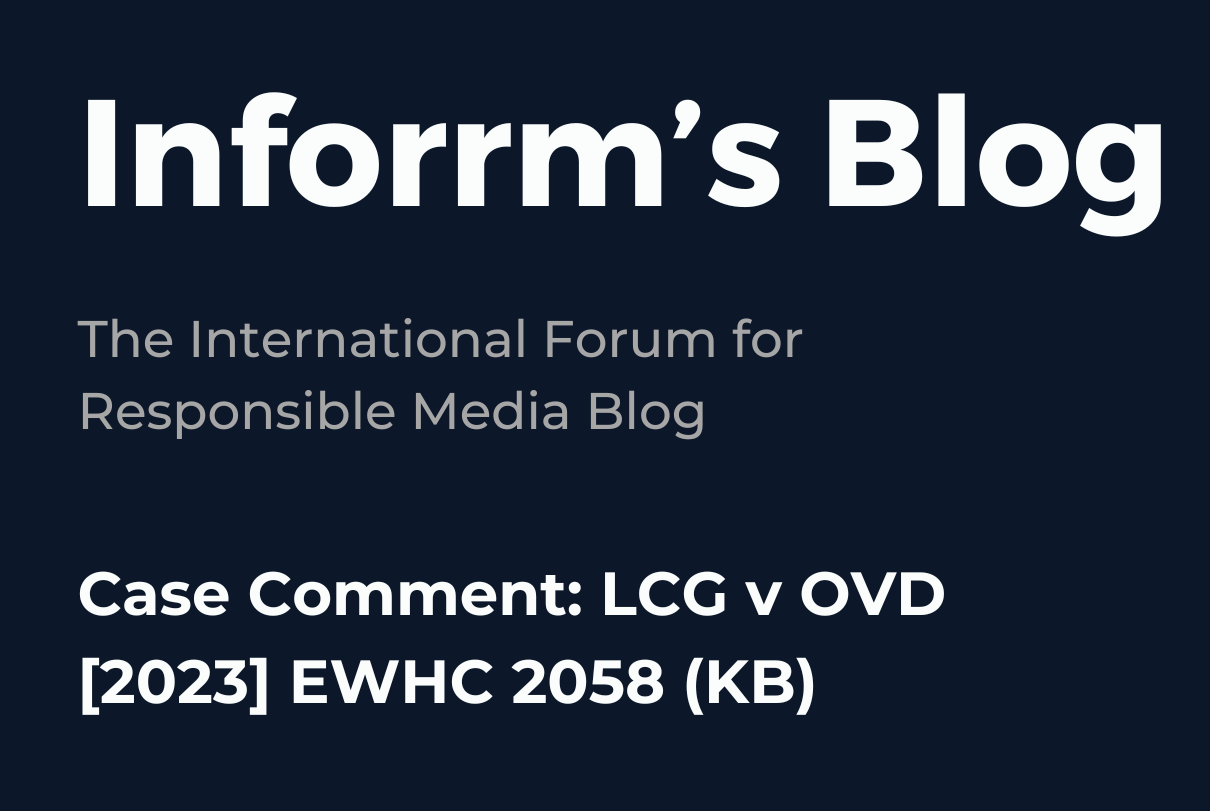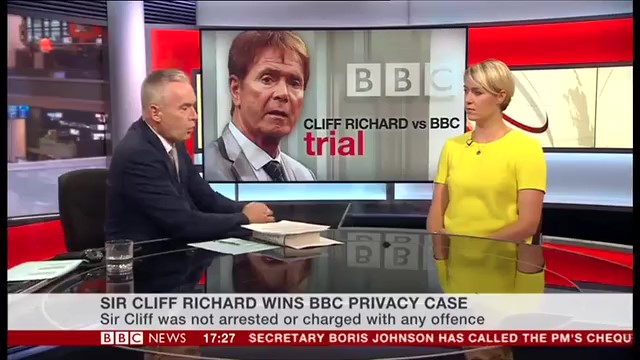
Harassment and Blackmail
Helping clients who are the subject of harassment and blackmail, particularly online or on social media, are a core part of Carter-Ruck’s leading media and reputation management practice
We have acted in ground-breaking harassment claims in the English courts, for high profile individuals as well as those who conduct their lives outside the public eye. We have secured interim and permanent injunctions to protect our clients from such conduct.
Harassment and blackmail will sometimes entail a criminal law element and we frequently work with specialist criminal solicitors on such cases.
It is now a well-established practice for the civil courts to adapt their procedures to protect the rights of victims of attempted blackmail. This includes the ability to apply for hearings to be held in private and for anonymity for claimants (and defendants where necessary) in harassment and blackmail claims. Where the perpetrator of harassment or blackmail is unknown or their identity concealed online, a court can also order entities such as website operators to identity and contact details.
Our experience of harassment cases includes online publication of false or private material, stalking, so-called “revenge porn” cases, and national and cross-border disputes.
Our clients
- Celebrities and high-profile individuals and their families
- Businessmen, CEOs and Ultra High Net Worth individuals
- Leading political figures around the world
- Large and multi-national corporations
- Charities and charitable trustees
24/7 Partner-led Crisis Response
We have a 24-hour, 365 days of the year crisis management response team – one of our specialist partners is always available to respond to urgent crises at any time.
Case studies
SOJ v JAO [2019] EWHC 2569 (QB) – interim injunction preventing the publication of private information in the context of an existing confidentiality agreement
Carter-Ruck obtained an interim injunction for a successful businessman whose former partner threatened to publish private information about him. This included the fact of their previous relationship, her false allegation that our client had infected her with sexually transmitted diseases, and the details of their dispute over whether she had breached the terms of a confidentiality agreement, under the terms of which she was due to receive further payments.
Case studies
BVG v LAR [2020] EWHC 931 (QB) – permanent injunction preventing the publication of covertly filmed BDSM sessions, and preventing the Defendant from harassing the Claimant
Carter-Ruck acted for a businessman being harassed and blackmailed, with LAR threatening to publicly disclose videos and recordings of covertly filmed consensual BDSM sessions between them unless our client, BVG, paid him various sums of money.
We successfully obtained an interim injunction and later a permanent injunction to protect our client.
Case studies
NPV v QEL & ZED [2018] EWHC 703 (QB) – injunction preventing the publication of intimate photographs and harassment of the Claimant, who was being blackmailed by the Defendants
Carter-Ruck acted for a successful businessman who was being blackmailed by his former mistress and an individual connected to her into paying sums of money in order to avoid details of the affair being made public.
An interim injunction was obtained, and – for the first time – the Court allowed the injunction to be served by text.
Case studies
AXB v BXA [2018] EWHC 588 (QB) – permanent anti-harassment injunction granted in connection with false claims of pregnancy and threats to misuse private information in an extra-marital affair
Carter-Ruck acted for a businessman in his claim for fraud, harassment and misuse of private information against his former mistress. The claim covered the former mistress’s false claims of pregnancy and false claims that she had contracted a sexually transmitted disease from our client.
A permanent injunction was obtained, together with an award of £124,655 in damages.
Case studies
DEF & Others v VWX (unreported) – injunction against acts of harassment involving both private and public abuse and threats in support of demands for money
Carter-Ruck acted for an anonymous celebrity who sought an injunction against a former partner who was engaging in a campaign of harassment against our client, his wife and their young child.
The interim injunction was granted, and continued. The matter concluded with VWX giving undertakings to the Court (reflecting the terms of the interim injunction).
Case studies
Advising a charity in respect of the repeated publication of false and defamatory statements made to third parties, and violence, theft and stalking of charitable trustees.
Harassment & Blackmail FAQs
-
This is a persistent and deliberate course of unreasonable and oppressive conduct, by a person who knows or ought to know it amounts to harassment, targeted at another person causing them alarm, fear or distress.
A course of conduct must involve conduct having taken place on at least two occasions; and what is oppressive or unacceptable will be judged objectively, taking the whole context into account. A wide range of conduct can constitute harassment, whether in person, in writing or online.
-
This can cover anything from physically intrusive behaviour (following someone, turning up on someone’s doorstep, stalking, organising protests), to online actions (repeated profile viewings or social media postings – for instance of intimate images – setting up of fake accounts), to repeated publication of newspaper articles, industrial espionage or the making of unwarranted legal threats. Particular attention is paid to persistent conduct or particularly troubling types of conduct.
-
The short answer is yes.
Where the company is on the receiving end of harassing conduct, it is possible for it to bring a claim in harassment provided certain circumstances are met. This could cover, for instance, continued and disruptive protests made outside a company’s premises; or a campaign of activist intimidation undertaken against employees or directors.
A company can also be held vicariously liable for harassing behaviour carried out by one of its employees acting in the course of their employment.
-
It is possible to bring a claim against “persons unknown”. The persons against whom a remedy is granted will be defined by reference to objective criteria (e.g. the use of an email address, or the fact of engaging in the harassing conduct whilst in a specific geographical location).
-
The remedies include the granting of an injunction restraining the defendant from pursuing any conduct which amounts to harassment, and an award of damages for any anxiety caused by, and any financial loss resulting from the harassment. In urgent cases, an interim injunction can be obtained at short notice.
-
The main defences are set out in the Protection from Harassment Act 1997 and include proving that the conduct was pursued for the purposes of preventing or detecting crime; pursuant to a legal obligation; or that the conduct was reasonable.












































